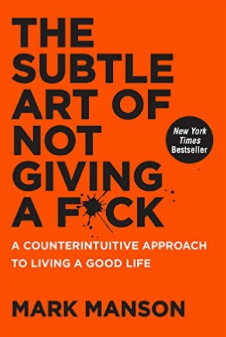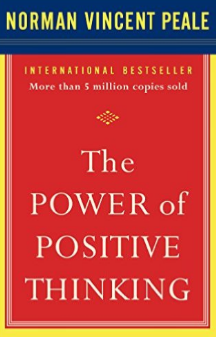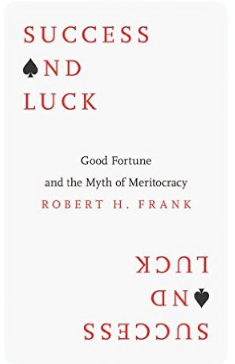 I recently read “The Subtle Art of Not Giving A F*ck: A Counterintuitive Approach To Living A Good Life” by Mark Manson. Despite the constant cursing, it’s one of the most profound books I’ve read in a while. Below are the quotes I found most interesting. If you like them, please buy the book here.
I recently read “The Subtle Art of Not Giving A F*ck: A Counterintuitive Approach To Living A Good Life” by Mark Manson. Despite the constant cursing, it’s one of the most profound books I’ve read in a while. Below are the quotes I found most interesting. If you like them, please buy the book here.
“Despite the book sales and the fame, Bukowski was a loser. He knew it. And his success stemmed not from some determination to be a winner, but from the fact that he knew he was a loser, accepted it, and then wrote honestly about it. He never tried to be anything other than what he was. The genius in Bukowski’s work was not in overcoming unbelievable odds or developing himself into a shining literary light. It was the opposite. It was his simple ability to be completely, unflinchingly honest with himself – especially the worst parts of himself – and to share his failings without hesitation or doubt.” (3)
“Giving too many fucks is bad for your mental health. It causes you to become overly attached to the superficial and fake, to dedicate your life to chasing a mirage of happiness and satisfaction. The key to a good life is not giving a fuck about more; it’s giving a fuck about less, giving a fuck about only what is true and immediate and important.” (5)
“Our crisis is no longer material; it’s existential, it’s spiritual. We have so much fuckign stuff and so many opportunities that we don’t even know what to give a fuck about anymore.” (8)
“Because there’s an infinite amount of thigns we can now see or know, there are also an infinite number of ways we can discover that we don’t measure up, that we’re not good enough, that things aren’t as great as they could be.” (9)
“The desire for more positive experience is itself a negative experience. And, paradoxically, the acceptance of one’s negative experience is itself a positive experience.” (9)
“The more you pursue feeling better all the time, the less satisfied you become, as pursuing something only reinforces the fact that you lack it in the first place.” (9)
“Most of us struggle throughout our lives by giving too many fucks in situations where fucks do not deserve to be given.” (12)
“Subtlety #1: Not giving a fuck does not mean being indifferent; it means being comfortable with being different.” (14)
“No matter where you go, there’s a five-hundred-pound load of shit waiting for you. And that’s perfectly fine. The point isn’t to get away from the shit. THe point is to find the shit you enjoy dealing with.” (17)
“Subtlety #2: To not give a fuck about adversity, you must first give a fuck about something more important than adversity.” (17)
“There is a premise that underlies a lot of our assumptions and beliefs. The premise is that happiness is algorithmic, that it can be worked for and earned and achieved as if it were getting accepted to law school or building a really complicated Lego set. If I achieve X, then I can be happy. If I look like Y, then I can be happy. If I can be with a person like Z, then I can be happy.
This premise, though, is the problem. Happiness is not a solvable equation. Dissatisfaction and unease are inherent parts of human nature and, as we’ll see, necessary components to creating consistent happiness.” (26)
“We suffer for the simple reason that suffering is biologically useful. It is nature’s preferred agent for inspiring change.” (27)
“Life is essentially an endless series of problems, Mark,” the Disappointment Panda told me. He sipped his drink and adjusted the little pink umbrella. “The solution to one problem is merely the creation of the next one… Don’t hope for a life without problems,” the panda said. “There’s no such thing. Instead, hope for a life full of good problems.”” (30)
“Problems never stop; they merely get exchanged and/or upgraded. Happiness comes from solving problems.” (31)
“The secret sauce is in the solving of the problems, not in not having problems in the first place.” (31)
“To be happy we need something to solve. Happiness is therefore a form of action; it’s an activity, not something that is passively bestowed upon you.” (31)
“True happiness occurs only when you find the problems you enjoy having and enjoy solving.” (32)
“Emotions are simply biological signal designed to nudge you in the direction of beneficial change.” (34)
“An obsession and overinvestment in emotion fails us for the simple reason that emotions never last.” (35)
“A more interesting question, a question that most people never consider, is, “What pain do you want in your life? What are you willing to struggle for?” Because that seems to be a greater determinant of how our lives turn out.” (36)
“Who you are is defined by what you’re willing to struggle for.” (40)
“The true measurement of self-worth is not how a person feels about her positive experiences, but rather how she feels about her negative experiences.” (46)
“Construing everything in life so as to make yourself out to be constantly victimized requires just as much selfishness as the opposite.” (56)
“Technology has solved old economic problems by giving us new psychological problems. The Internet has not just open-sourced information; it has also open-sourced insecurity, self-doubt, and shame.” (60)
“The rare people who do become truly exceptional at something do so not because they believe they’re exceptional. On the contrary, they become amazing because they’re obsessed with improvement. And that obsession with improvement stems from an unerring belief that they are, in fact, not that great at all. It’s anti-entitlement. People who become great at something become great because they understand that they’re not already great – they are mediocre, they are average – and that they could be so much better.” (61)
“The question is not whether we evaluate ourselves against others; rather, the question is by what standard do we measure ourselves?” (78)
“Self-improvement is really about prioritizing better values, choosing better things to give a fuck about. Because when you give better fucks, you get better problems. And when you get better problems, you get a better life.” (89)
“Often the only difference between a problem being painful or being powerful is a sense that we chose it, and that we are responsible for it.” (91)
“If you’re miserable in your current situation, chances are it’s because you feel like some part of it is outside your control – that there’s a problem you have no ability to solve, a problem that was somehow thrust upon you without your choosing.” (91)
“When we feel that we’re choosing our problems, we feel empowered. When we feel that our problems are being forced upon us against our will, we feel victimized and miserable.” (91)
“There is a simple realization form which all personal improvement and growth emerges. This is the realization that we, individually, are responsible for everything in our lives, no matter the external circumstances.
We don’t always control what happens to use. But we always control how we interpret what happens to us, as well as how we respond.” (94)
“The more we choose to accept responsibility in our lives, the more power we will exercise over our lives.” (96)
“Nobody else is ever responsible for your situation but you. Many people may be to blame for your unhappiness, but nobody is ever responsible for your unhappiness but you.” (99)
“If the people in your relationships are selfish and doing hurtful things, it’s likely you are too, you just don’t realize it.” (101)
“You are already choosing, in every moment of every day, what to give a fuck about, so change is as simple as choosing to give a fuck about something else.” (113)
“Evil people never believe that they are evil; rather, they believe that everyone else is evil.” (133)
“My recommendation: don’t be special; don’t be unique. Redefine your metrics in mundane and broad ways. Choose to measure yourself not as a rising star or an undiscovered genius. Choose to measure yourself not as some horrible victim or dismal failure. Instead, measure yourself by more mundane identities: a student, a partner, a friend, a creator. The narrower and rarer the identity you choose for yourself, the more everything will seem to threaten you.” (140)
“If it feels like it’s you versus the world, chances are it’s really just you versus yourself.” (146)
“Improvement at anything is based on thousands of tiny failures, and the magnitude of your success is based on how many times you’ve failed at something. If someone is better than you at something, then it’s likely because she has failed at it more than you have. If someone is worse than you, it’s likely because he hasn’t been through all of the painful learning experiences you have.” (150)
“It’s growth that generates happiness, not a long list of arbitrary achievements.” (152)
“Just as one must suffer physical pain to build stronger bone and muscle, one must suffer emotional pain to develop greater emotional resilience, a stronger sence of self, increased compassion, and a generally happier life.” (154)
“Life is about not knowing and then doing something anyway. All of life is like this. It never changes. Even when you’re happy.” (158)
“Action isn’t just the effect of motivation; it’s also the cause of it.” (160)
“Someone asked the novelist how he was able to write so consistently and remain inspired and motivated. He replied, “Two hundred crappy words per day, that’s it.” The idea was that if he forced himself to write two hundred crappy words, more often than not the act of writing would inspire him; and before he knew it, he’d have thousands of words down on the page.” (162)
“There’s a bluntness to Russian culture that generally rubs Westerners the wrong way. Gone are the fake niceties and verbal webs of politeness. You don’t smile at strangers or pretend to like anything you don’t. In Russia, if something is stupid, you say it’s stupid. If someone is being an asshole, you tell him he’s being an asshole. If you really like someone and are having a great time, you tell her that you like her and are having a great time. It doesn’t matter if this person is your friend, a stranger, or someone you met five minutes ago on the street.” (167)
“There is such pressure in the West to be likable that people often reconfigure their entire personality depending on the person they’re dealing with.” (170)
“Unhealthy love is based on two people trying to escape their problems through their emotions for each other – in other words, they’re using each other as an escape. Healthy love is based on two people acknowledging and addressing their own problems with each other’s support.” (175)
“The mark of an unhealthy relationship is two people who try to solve each other’s problems in order to feel good about themselves. Rather, a healthy relationship is when two people solve their own problems in order to feel good about each other.” (177)
“It’s not about giving a fuck about everything your partner gives a fuck about; it’s about giving a fuck about your partner regardless of the fucks he or she gives. That’s unconditional love, baby.” (181)
“When our highest priority is to always make ourselves feel good, or to always make our partner feel good, then nobody ends up feeling good. And our relationship falls apart without our even knowing it.” (182)
“Commitment makes decision-making easier and removes any fear of missing out; knowing that what you already have is good enough, why would you ever stress about chasing more, more, more again? Commitment allows you to focus intently on a few highly important goals and achieve a greater degree of success than you otherwise would.” (189)
“If there really is no reason to do anything, then there is also no reason to not do anything.” (194)
“Whether you’re listening to Aristotle or the psychologists at Harvard or Jesus Christ or the goddamn Beatles, they all say that happiness comes from the same thing: caring about something greater than yourself, believing that you are a contributing component in some much larger entity, that your life is but a mere side process of some great unintelligible production. This feeling is what people go to church for; it’s what they fight in wars for; it’s what they raise families and save pensions and build bridges and invent cell phones for: this fleeting sense of being part of something greater and more unknowable than themselves.” (206)
Liked the quotes? Buy the book here.





